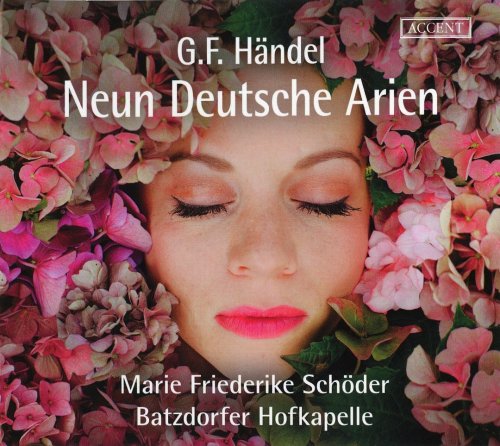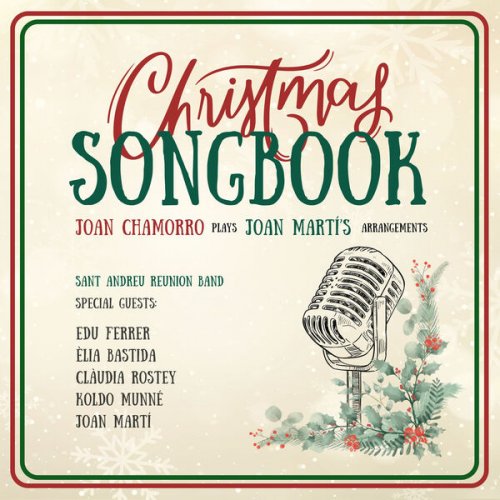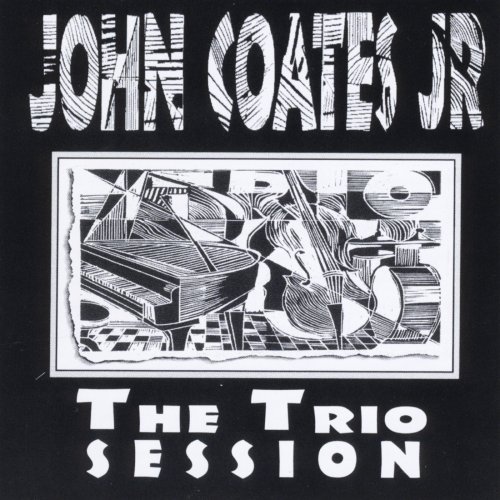Marie Friederike Schoder, Batzdorfer Hofkapelle - Handel: Neun Deutsche Arien (2017) CD-Rip

Artist: Marie Friederike Schoder, Batzdorfer Hofkapelle
Title: Handel: Neun Deutsche Arien
Year Of Release: 2017
Label: Accent
Genre: Classical
Quality: FLAC (image+.cue,log,scans)
Total Time: 01:02:00
Total Size: 323 Mb
WebSite: Album Preview
Tracklist: Title: Handel: Neun Deutsche Arien
Year Of Release: 2017
Label: Accent
Genre: Classical
Quality: FLAC (image+.cue,log,scans)
Total Time: 01:02:00
Total Size: 323 Mb
WebSite: Album Preview
Moral/Morality
1 No. 1 Künftiger Zeiten Eitler Kummer HWV 202 6:01
2 No. 7 Die Ihr Aus Dunklen Grüften HWV 208 5:37
3 No. 5 Singe Seele, Gott Zum Preise HWV 206 4:55
Sonata For Violin In G Minor Op. 1 No. 6 HWV 364 (6:20)
4 Larghetto
5 Allegro
6 Adagio
7 Allegro
Nature/Romanticisation
8 No. 6 Meine Seele Hört im Sehen HWV 207 6:20
9 No. 3 Süßer Blumen Ambraflocken HWV 204 6:20
10 No. 9 Flammende Rose, Zierde Der Erden HWV 210 5:30
Three Pieces For A Musical Clock Arranged For Two Lutes (6:25)
11 A Voluntary Or A Flight Of Angels HWV 600
12 Aria HWV 598
13 Gigue HWV 589
Quiet Desire/Love
14 No. 8 In Den Angenehmen Büschen HWV 209 3:23
15 No. 2 Das Zitternde Glänzen Der Spielenden Wellen HWV 203 5:17
16 No. 4 Süße Stille, Sanfte Quelle HWV 205 5:54
Performers:
Marie Friederike Schöder (soprano)
Batzdorfer Hofkapelle
Handel's Neun Deutsche Arien, or Nine German Arias, were written not at the beginning of the composer's career in north Germany, but in the mid-1720s in London, to texts by his friend B.H. Brockes. They are unusual works: not formally, for they follow the established da capo structure of the day, but in the texts and Handel's response to them. They are not easily classified as either sacred or secular, but you might call them sacred arias with secular subject matter. German soprano Marie Friederike Schöder does well to classify them by theme ("morality," nature and its romanticization, quiet desire and love); there was little indication from Handel of which order the pieces should be performed in, and this method fits the slightly didactic tone of the texts and the bracing contrast of that tone with the full flower of Italianate vocal music. Schöder and the Batzdorfer Hofkapelle intersperse instrumental works -- a sonata, and three pieces for musical clock, arranged for two lutes -- among the three sections, and the program is one Handel himself might have recognized, even if one wonders why historical-instrument specialists never get it together to record musical-clock music on the instrument for which it was intended. Schöder has a clear, rather formal voice that fits this music beautifully. She has strong competition in these pieces -- in the 2010s from Britain's Carolyn Sampson, and before that from Arleen Auger -- but less so in the construction of the program and the capturing of the overall mood. Recommended.
[center][/center]
DOWNLOAD FROM ISRA.CLOUD
Handel - Neun Deutsche Arien Marie Friederike Schoder 17 1408.rar - 323.2 MB
Handel - Neun Deutsche Arien Marie Friederike Schoder 17 1408.rar - 323.2 MB

![Posey Royale - The Real Low-Down (2025) [Hi-Res] Posey Royale - The Real Low-Down (2025) [Hi-Res]](https://www.dibpic.com/uploads/posts/2025-12/1765494723_zbd6vfngwwskb_600.jpg)

![Club Bolero, Armik - A Day in Brazil (2007) [Hi-Res] Club Bolero, Armik - A Day in Brazil (2007) [Hi-Res]](https://img.israbox.com/img/2025-12/15/5l607nskcv4xb0n237d8ngs7q.jpg)
![Tomasz Stańko - Unit (Polish Radio Sessions vol. 2/6) (2025) [Hi-Res] Tomasz Stańko - Unit (Polish Radio Sessions vol. 2/6) (2025) [Hi-Res]](https://www.dibpic.com/uploads/posts/2025-12/1765790300_cover.jpg)


![Keith Oxman - Home (2025) [Hi-Res] Keith Oxman - Home (2025) [Hi-Res]](https://www.dibpic.com/uploads/posts/2025-12/1765387688_hltlbo3s1g1aa_600.jpg)
![Tomasz Stańko - Piece for Diana and Other Ballads (Polish Radio Sessions vol. 1/6) (2025) [Hi-Res] Tomasz Stańko - Piece for Diana and Other Ballads (Polish Radio Sessions vol. 1/6) (2025) [Hi-Res]](https://www.dibpic.com/uploads/posts/2025-12/1765788761_cover.jpg)